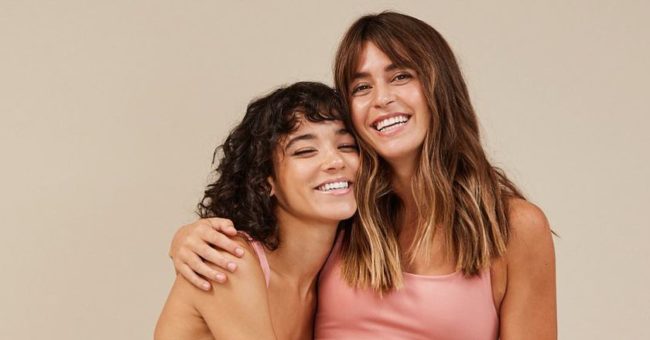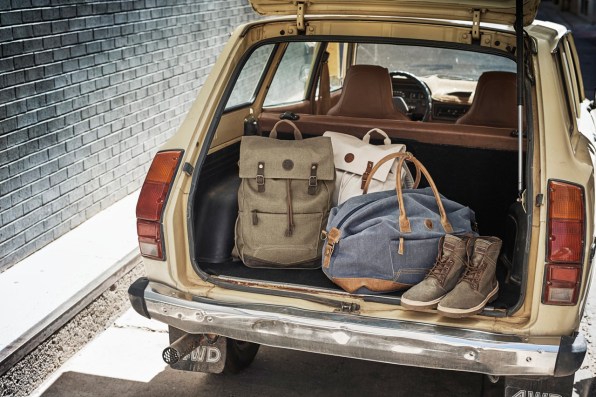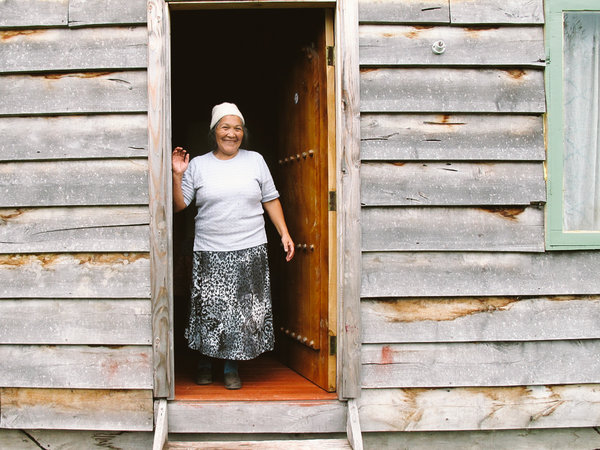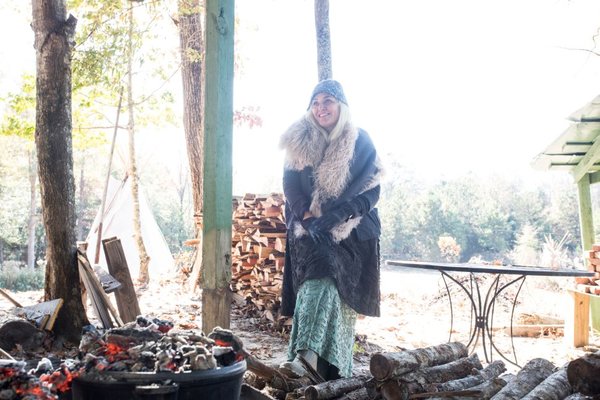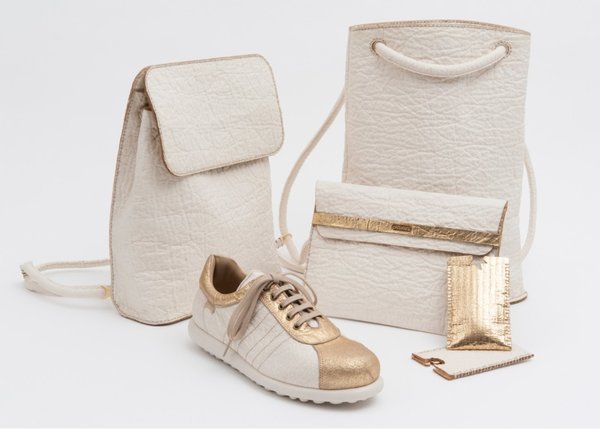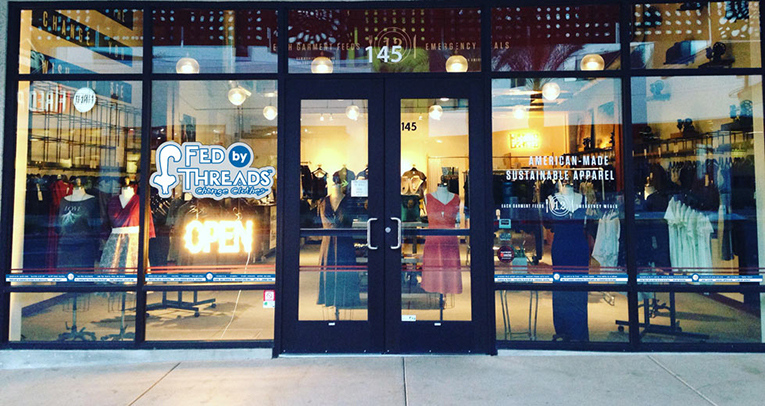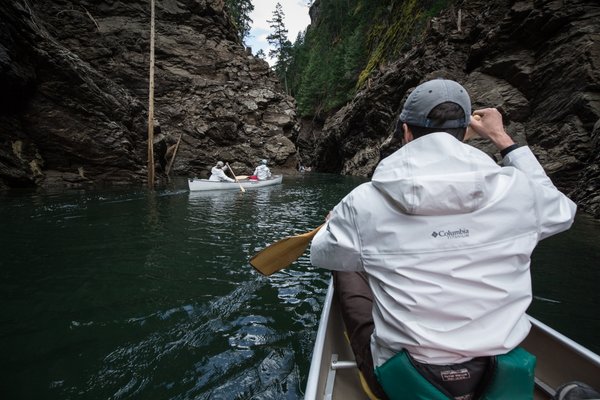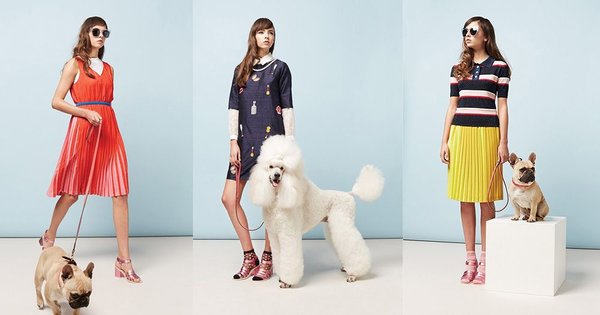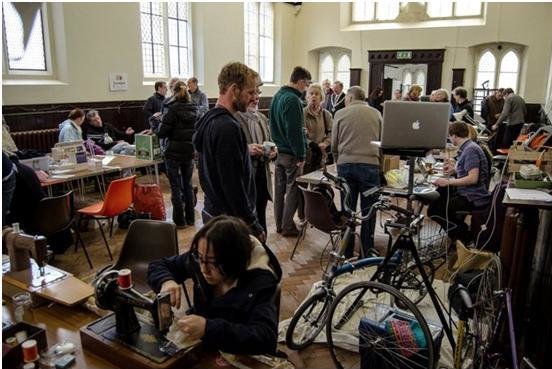The fashion industry receives a lot of criticism for a lack of eco-friendly sourcing and production methods. Girlfriend Collective (GC) has tackled this issue head-on by creating an eco-friendly line of activewear clothing. GC was founded to offer people a completely transparent clothing line. The Seattle based company is built from top to bottom with sustainability initiatives in mind. All of their packaging is recycled and recyclable, and they make most of their clothing with post-consumer products.
Continue reading... →In June, C&A, the international Dutch chain of retail clothing stores launched a line of T-shirts certified to the Cradle to Cradle standard, meaning that they were designed and manufactured in a way that is benign to the environment and human health, and whose materials can be recirculated safely back into industrial materials or composted into the soil. It represents, in no small measure, the future of product design and manufacturing. Creating a Cradle to Cradle (or C2C) T-shirt — at scale and at an affordable price to the consumer — was no small feat for C&A. It required a board-level commitment, close partnerships with contract manufacturers, an arduous search for replacements for problematic materials and some new messaging to customers.
Continue reading... →The recycling organization, Thread, is teaming up with the shoe and apparel company, Timberland, to bring customers new products made from 50% recycled plastic, collected as part of an economic revitalization project in Haiti. In Haiti, for the fabric made for Timberland, more than 1,300 people collected plastic bottles, and sold them to 50 Haitian-owned and operated collection centers that Thread partners with. The process to turn a bottle into fabric is fairly simple: the plastic is mechanically broken down into flakes, put through something that looks like a Play-Doh extruder, and then rolled and manipulated into bales that can be spun into fabric. Plastic bottles are made from oil; so is polyester. When a bottle is recycled into fabric, the end result looks the same as if it had come from fossil fuels (it can also be recycled into other products, such as printer cartridges).
Continue reading... →If you didn’t know, the majority of the apparel we wear is made by women in developing countries, in unpleasant and cruel environments. This is a reality. The good news is we can do something about it! With this perilous situation, there are vast amounts of potential for the fashion industry to empower and uplift women. But, it’s going to take a lot of work. What you can do about it? Educate yourself, shop ethically and empower designers.
Continue reading... →Alabama Chanin’s success reflects an ongoing evolution in the fashion industry format from seasonal to sustainable. Natalie Chanin began making t-shirts that New Yorkers wanted to touch over 15 years ago. It started with a hastily refashioned tee for a swanky party. The rural Alabama girl thought it was unusual that the “fancy fashion city folk” handled her creation with wonder. This makeshift shirt opened an opportunity to connect with people from a different world. That’s how the founder and creative director of Alabama Chanin describes the advent of her sustainable slow fashion brand in an episode of storytelling podcast The Moth entitled “200 One-of-a-Kind Shirts,” recorded in April of 2014. She was moved to create more, and it was the quilting tradition of her grandmother’s generation and the pastoral inspiration of her hometown that drew her back to Florence, Alabama to start her business.
Continue reading... →New materials company Ananas Anam is using pineapple waste to create a new material that provides an animal-friendly alternative to leather. The material uses fine cellulose fibers extracted from pineapple leaves – which are considered an agricultural by-product that is often burned or left to rot. An estimated 40,000 tonnes of this pineapple waste is generated globally each year. Piñatex utilizes waste taken from pineapple plantations in the Philippines, with local factories separating the strands and felting them together into a non-woven fabric that can be used for clothes, footwear or furniture.
Continue reading... →Three small green businesses offering ethical apparel in New York,Arizona and Wisconsin, were announced as the winners of Green America’s “People & Planet Award.” The winners of the $5,000 prizes are: Themis and Thread of Hector, NY; Fed By Threads of Tucson, AZ; and Fair Indigo of Madison, WI. The winners were selected by the public during a month-long online voting period. The Award recognizes innovative U.S. small businesses that integrate environmental and social considerations into their strategies and operations.
Continue reading... →Columbia will reveal a new rain jacket free of perfluorinated compounds, better known as PFCs, in spring 2017. The rain jacket will feature a technology the company calls OutDry Extreme ECO and will sell for $199. The jacket’s eco-friendly traits don’t stop at the use of the new technology. Its main fabric is 100 percent recycled polyester, which will come from approximately 21 recycled bottles. Trims and other components will also contain recycled content. The jacket’s fabric will not be dyed which will reduce water, energy and chemicals.
Continue reading... →At any given moment in time, all of us own products that no longer perform the way that they used to: a watch that’s stopped, a lamp that flickers, a beloved sweater that’s been snagged. Whether its planned obsolescence, regular use or accidental damage, very few products will last a lifetime. A dedicated groups of individuals have already begun setting up fixing hubs, often referred to as ‘Repair Cafés’, to promote and facilitate the repair of everyday goods and appliances, locally and free of charge. This movement is supporting the creation of a circular economy and earth centered way of living.
Continue reading... →